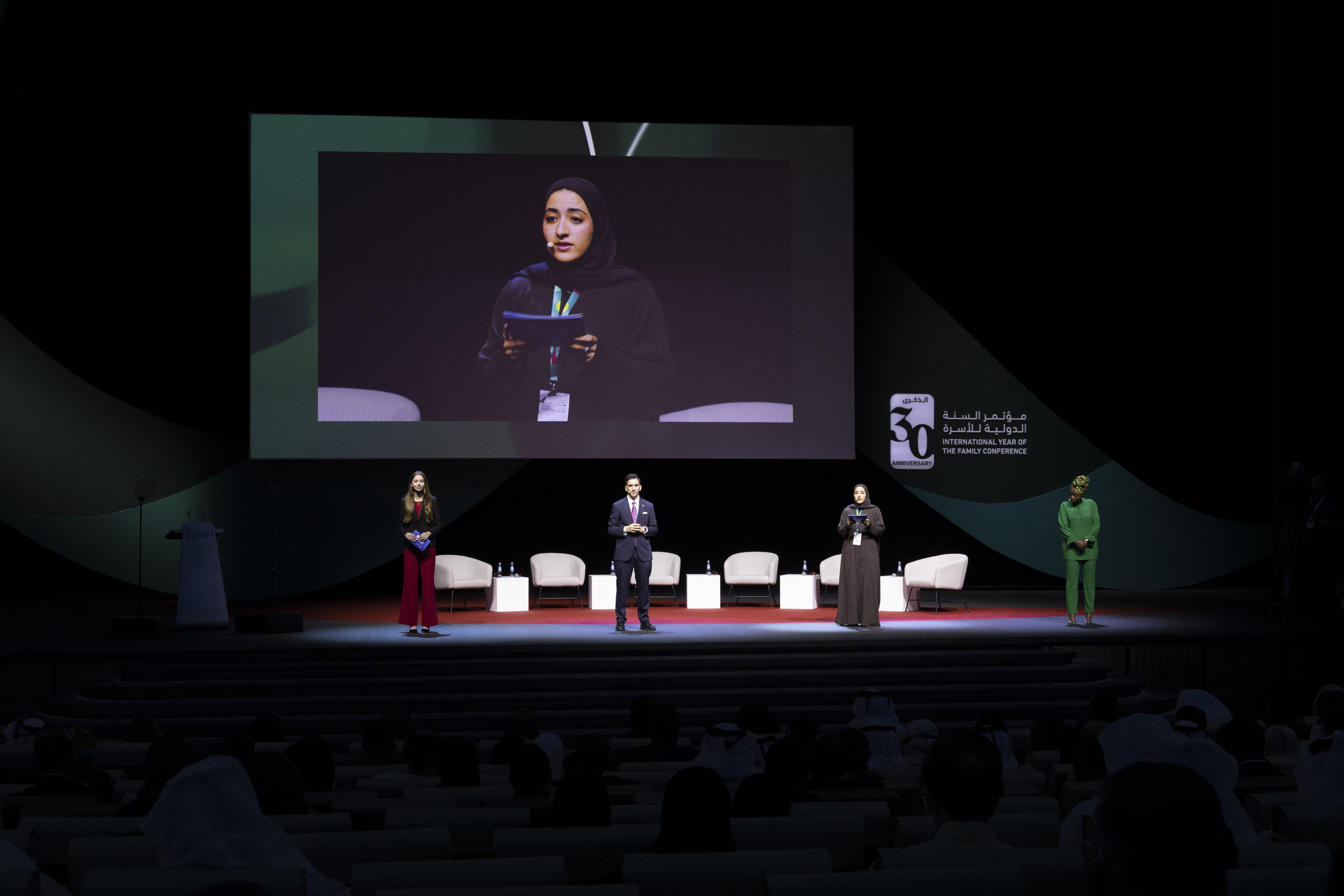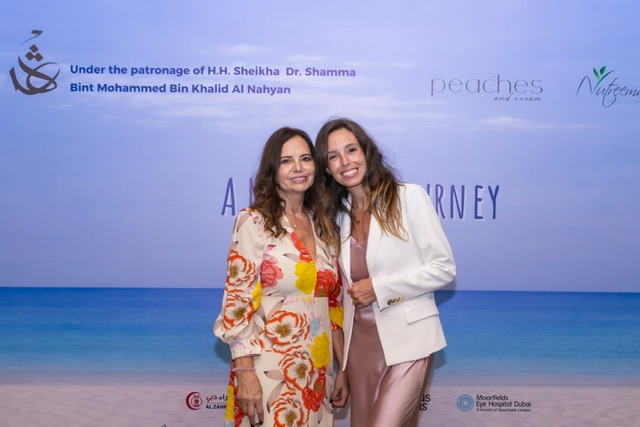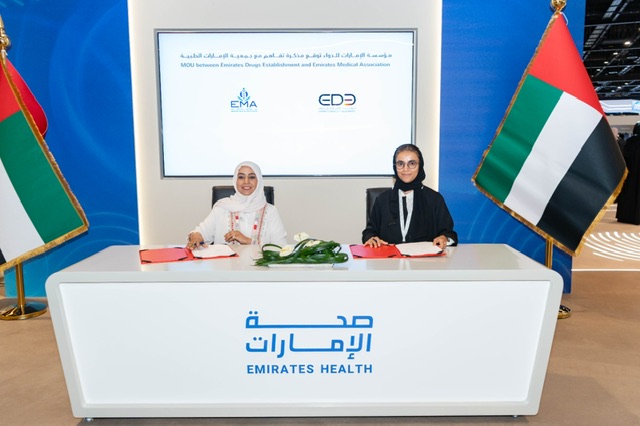
milestone conference focused on the family – organized by Qatar Foundation’s Doha International Family Institute – has concluded with the Doha Call to Action, a series of recommendations for tackling challenges facing families worldwide.
Announced at the closing session of the 30th Anniversary of the International Year of the Family Conference on Family and Contemporary Megatrends – attended by Her Excellency Maryam bint Ali bin Nasser Al Misnad, Minister of Social Development and Family, and Her Excellency Sheikha Hind bint Hamad Al Thani, Vice Chairperson and CEO of Qatar Foundation – the Doha Call to Action includes over 30 recommendations, including prioritizing family needs and humanitarian support amid war and conflict; integrating lessons on family relationships and values, and intergenerational respect, into school curricula; and making family policies a cornerstone of social justice.
It also recommends enhancing research- and evidence-based approaches to inform family policies; implementing policies that prioritize the best interests of children; involving families, children, and youth in family policymaking and program design; fostering regional collaboration on family policy; and creating or strengthening dedicated government institutions to oversee and implement family policies.
Specific recommendations based on how technological change, migration and urbanization, demographic change, and climate change affect families have also been produced from discussions during and ahead of the conference. Further discussions will now be held with policymakers, governments, and other stakeholders over ways to implement the Doha Call to Action.
“The closing of the conference is not about resonant words or slogans to highlight achievements, but rather a call to action in which we all participate,” Dr. Sharifa Noman Al-Emadi, Executive Director of Doha International Family Institute, told the closing ceremony.
“Each of us bears the responsibility to strive for the implementation of the Doha Call to Action, and we will unite in this endeavor – from decision-making positions, United Nations organizations, civil society organizations, thinktanks, universities, and the private sector.”
On the second day of the conference, in a session titled ‘Longing for Belonging: What’s Next for Migrant Families?’, Her Excellency Shanaz Ibrahim Ahmed, First Lady of the Republic of Iraq, said that when migrant families move to a new country: “They think a better life awaits them, but in reality they face harsh conditions that deepen their sense of isolation and keep their longing for their homelands awake no matter how long they are away.”
“When people leave their homes, they have no doubt that they will soon return. No refugee enters a camp and thinks that their stay will be long. But years go by, and people are still in camps, so it is imperative to create better living conditions for these refugees.
“Today, many countries focus on closing borders and restricting immigration while selectively allowing skilled professionals to enter. This policy leads to brain drain from countries that need them most.”
Her Excellency emphasized the need to address the causes of migration to reduce its impact and improve conditions for countries and individuals. Highlighting the lack of global policies prioritizing families, she called for initiatives that strengthen migrants’ sense of belonging through mental and emotional support programs.
Speaking in a high-level session on family policies in the Arab world, curated by the Ministry of Social Development and Family, Her Excellency Zahra Behrouz Azar, Vice President for Women and Family Affairs, Iran, said: “The family, despite the diversity and difference of cultures, constitutes the nucleus and the pillar of society. It is the backbone of development and progress, and remains a safe haven in the face of life’s challenges.”
“Today, the family faces profound global challenges, in particular because of the transformations to the structure of society, immigration, and demographic and economic changes caused by technology. These have a significant impact on the family structure, requiring the development of plans to reduce their negative effects, the adoption of economic, social, and cultural support policies, and improving laws and regulations that boost the situation of families.
“Strengthening the foundations of the family involves respecting community values, the ability to adapt and be flexible, and strengthening the bonds of solidarity among family members. Protecting families requires developing programs and initiatives for awareness, education, and support, and these programs cannot be a single, global version – they must be locally repurposed, taking into account the specificities of each society.
“We need to revive authentic values that have been passed down from generation to generation, while investing in them and reformulating them for new generations.”
During a panel titled ‘Family First’, Dr. Al-Emadi reinforced the importance of support and policies that address the family as a whole, and ensure no family member is left behind.
“In the strategies of many countries around the world, family is intended to be the fundamental unit in society,” she said. “But when it comes to policies and implementation, these policies focus separately on women, children, and the elderly, which support a specific member of the family, but could work against another.
“That’s why we advocate for family as a unit, and we have evidence-based findings showing that empowering the family as a unit is much stronger for society, and for family members themselves.”
The ‘Seen and Unseen: The Impact of Tech on Children’ panel examined the ways in which technology profoundly shapes family life, including its influence on children’s development. It also highlighted the risks and benefits of digital transformation, such as digital addiction, cyberbullying, and digital safety.
Dr. Syka Iqbal, Assistant Professor in Psychology from the University of Bradford, UK, told the audience that the impact of social media should be seen in its entirety – positive and negative. “The biggest thing that social media does is that it allows connection for children, and it’s a form of self-expression that helps them form their identity,” she said.
“A lot of children experience loneliness and isolation, so social media is a great way for them to connect with people. However, with social media come negative comments as well, which cause a lot of psychological distress.”
And a session titled ‘Tech for All: Bridging the Gap’, held in partnership with the Ministry of Sports and Youth, saw Dr. Dena Ahmed Saif Al Thani, Associate Professor at Hamad Bin Khalifa University, speak about research showing how technology design for elderly care should consider cultural differences, saying: “Family dynamics become very crucial and access to technology for the elderly becomes very dependent on the caregiver.
“In Arabic and South Asian cultures, caregiving is usually done by a family member, and especially the eldest daughter in the family. If they are not familiar with technology, the effect is felt by the elderly people in the family.”
The conference’s final discussion focused on family-friendly cities, with Tim Gill, scholar and author of Urban Playground, recalling a time when people would walk long distances to school or work, or to play.
“Today, children are being reared in captivity,” he said. “Almost all of their lives are spent in one box or another under the close oversight of adults. In earlier days, when children were not watched all the time, they had a sense of their own agency.
“We have not designed cities for children at all; we have designed them mainly around the needs of the car. If we need to build child-friendly cities, we need to think about a neighborhood that has a framework with two aspects. One is: let’s increase the choice and variety of places that children can go to – not just one playground, but lots of different spaces. And second, let’s think about how children can get around the neighborhoods where they live, especially on foot or by bike.”
The Ministry of Social Development and Family is the strategic partner for the conference, while the Permanent Committee for Organizing Conferences within the Ministry of Foreign Affairs is an executive partner, with support from the United Nations Department of Economic and Social Affairs (UNDESA). QatarDebate, founded by Qatar Foundation, is the conference’s youth partner.
![]()





